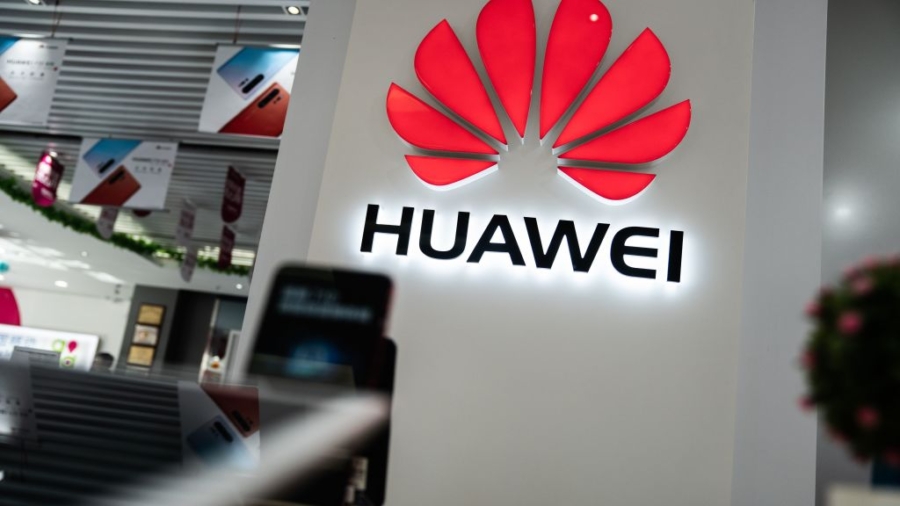Federal prosecutors have charged Chinese tech giant Huawei and several subsidiaries with conspiracy to steal trade secrets and violate anti-racketeering laws, the Department of Justice (DOJ) announced on Feb. 13.
These charges are in addition to previous charges on Huawei relating to violations of U.S. sanctions on Iran in an existing indictment.
The latest charge of trade secrets theft relates to alleged “decades-long efforts” by the company and its U.S.- and China-based affiliates to misappropriate intellectual property (IP) from other companies—including six U.S. technology companies—and use it to grow Huawei’s own business, the department stated. Such practices also amounted to a conspiracy to violate the Racketeer Influenced and Corrupt Organizations Act (RICO), it added.
The superseding 16-count indictment also alleges that the company has been involved in business and technology projects in sanctioned countries, such as North Korea and Iran.
It alleges that one of the company’s unofficial subsidiaries, Skycom, aided the Iranian government in conducting domestic surveillance.
An indictment previously unveiled in January 2019 charged Huawei and its affiliates with committing bank fraud related to violations of Iran sanctions, by misrepresenting Skycom as a firm it did business with.
A second separate indictment, also unveiled in January 2019, charged the company with theft of trade secrets over an alleged scheme to steal technology relating to a mobile testing robot from U.S. telecoms firm T-Mobile.
The fresh charges add to mounting U.S. scrutiny over the Chinese telecom giant’s trade practices and risks to national security. The company was blacklisted in 2019 from doing business with U.S. firms on national security grounds.
Alleged Theft of Trade Secrets
The indictment alleges that Huawei stole IP from six U.S. technology companies, including source code and user manuals for internet routers, antenna technology, and robot testing technology.
Prosecutors said the company used various means of “fraud and deception” to achieve this, including entering into confidentiality agreements with IP owners and then violating those agreements by using the IP for its own commercial use; recruiting former employees of target companies to gain access to IP from those companies; and using proxies such as professors working at target research institutions or companies to obtain IP.
As part of this scheme, the company had a bonus program to reward staff who obtained confidential information from competitors, the indictment alleges.
The company was successful in its attempts to steal trade secrets and other sophisticated U.S. technology, the DOJ stated. Huawei, along with its subsidiaries, Huawei USA and Futurewei, then agreed to reinvest the proceeds from this alleged racketeering activity into its global business, including in the United States, it added.
“As a consequence of its campaign to steal this technology and intellectual property, Huawei was able to drastically cut its research and development costs and associated delays, giving the company a significant and unfair competitive advantage.”
The company also sought to hide these IP theft practices from law enforcement, prosecutors allege. For instance, a company manual labeled “Top Secret” instructed certain employees to conceal their employment with Huawei during interactions with foreign law enforcement officials, the indictment stated.
Business in North Korea and Iran
The indictment also alleges that the company did business in countries sanctioned by the United States, United Nations, and EU, including Iran and North Korea. For example, it used local affiliates in the sanctioned countries to ship Huawei goods and services to customers in those countries.
Prosecutors allege the company sought to hide this business by using code words in internal documents to refer to those countries—for example, “A2” for Iran, and “A9” for North Korea.
The indictment also alleges the company, through Skycom, provided the Iranian government with surveillance technology that was used to monitor, identify, and detain protesters during anti-government demonstrations in Tehran in 2009. This contradicted previous statements from Huawei officials that the firm had never provided any equipment to the Iranian government, and that its Iran business didn’t violate U.S. sanctions relating to Iran, prosecutors said.
A spokesperson for Huawei, in an emailed statement to The Epoch Times, said the new charges were part of the DOJ’s attempt to “damage Huawei’s reputation and its business for reasons related to competition rather than law enforcement.”
“The ‘racketeering enterprise’ that the government charged today is nothing more than a contrived repackaging of a handful of civil allegations that are almost 20 years old and that have never been the basis of any significant monetary judgment against Huawei,” the statement said.
Sen. Ben Sasse (R-Neb.), a member of the U.S. Senate Select Committee on Intelligence, applauded the new charges against the Chinese telecom giant.
“These crimes—racketeering, conspiracy to steal trade secrets, and sanctions evasion—are part of [Chinese leader Xi Jinping’s] strategy to make China the world’s preeminent superpower,” Sasse said in a Feb. 13 statement. “The United States and our allies have an obligation to stop them.”
The U.S. administration has scrutinized Huawei in recent months. It has sought to convince U.S. allies to bar the company from 5G rollouts, arguing that its products can be exploited by the Chinese regime for espionage or to disrupt communication networks.
A federal grand jury returned the superseding indictment on Feb. 12 at a federal court in Brooklyn, New York.
From The Epoch Times


